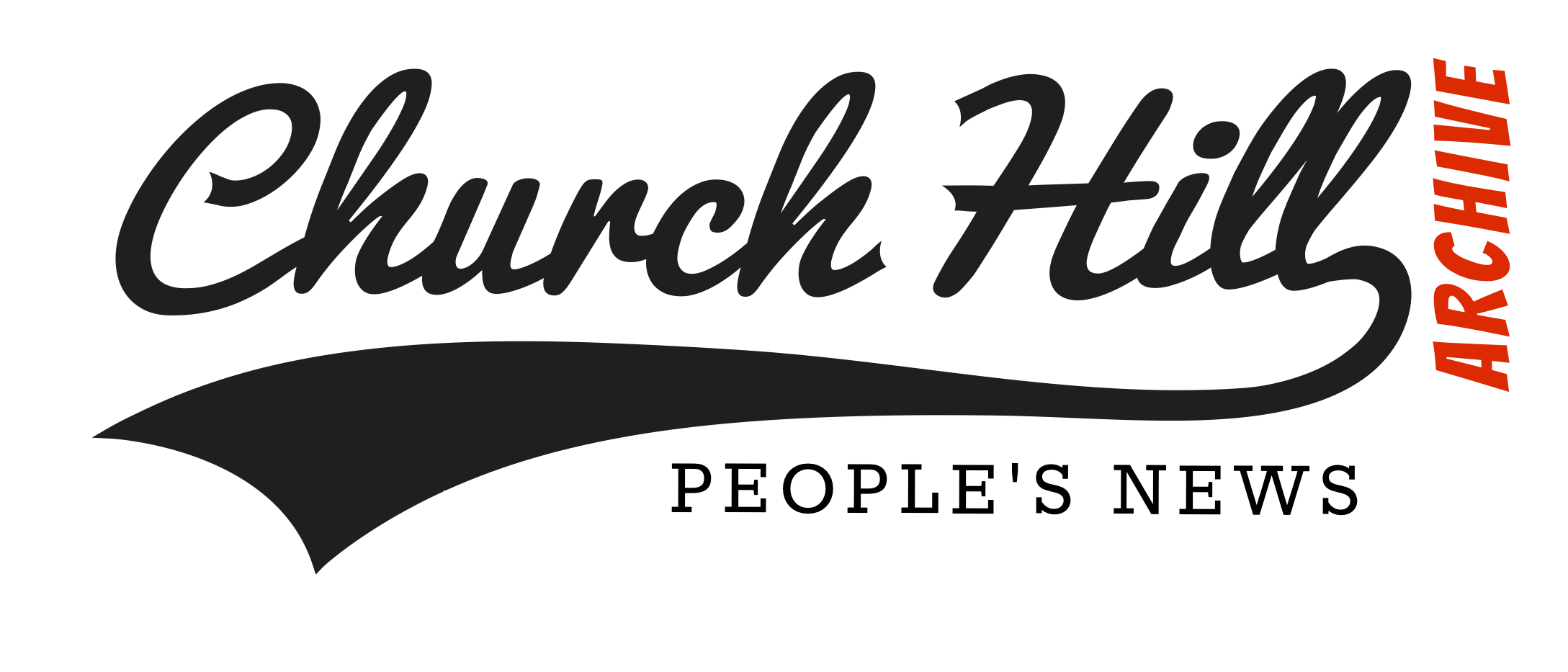RECENT COMMENTS
School Board public forum on “New Direction”
The Richmond School Board held a public forum this evening at Armstrong High School to present and take comments on their “New Direction for RPS” planning as of yet. In attendance were board members Keith West and Chandra Smith, and RPS Superintendent Dr.Jewell-Sherman.
The presentation began with an acknowledgement of the progress that Richmond Public Schools have made over the past 3 years. In that time, the percentage of students taking AP classes has increased from .97% to 5.2%, the percentage of schools making AYP has increased form 23% to 84%, the percentage of schools that are SOL -accredited has improved from 19% to 86%, and the number of students dual enrolled has jumped from 241 to 1253. West said that these are major steps, but we are still not where we need to be.
He then delved into the basic tenets of the board’s “new direction”. He explained that with an emphasis on “developing the whole person”, the schools can ensure that students have the mental, physical, and ethical capabilities necessary to succeed after graduation (a notion first floated at the September Mayor’s 7th District Roundtable Meeting). Specific capabilities to be emphasized include punctuality, civic responsibility, effective communication skills, problem-solving capabilities, and healthy lifestyles and nutrition awareness.
A foundation of the new plan is putting in place a Personalized Education Plan (PEP) for each student. A sample PEP, apparently from Henrico, was provided as a hand-out. The PEP would be related to but different than Individualized Education Plan (IEP) that is federally mandated for Exceptional Education students. The plan seeks to identify learning characteristics and strengths/weaknesses of the student so that the schools are able to taylor an education for an individual student. The Henrico example is required for students that are retained or who are not performing at grade level and focuses purely on academics. The plan is a collaboration between the teacher, student, and parent to work towards ensuring the student’s success in the classroom.
Another point in the plan is an increase in “Program Choices”. As Community High, Open High, and Franklin Military offer options at the high school level, other options such as foreign language immersion and different academies can be considered. This is also a call for an expansion in popular programs such as AP (Advanced Placement) and IB (International Baccalaureate) courses.
West said that the school system needs to strive to “make ourselves as efficient as possible”, so that they can take the savings and apply them “where we can help the children the most”. He also acknowledge the potential need for reallocation of resources, saying that “nothing comes for free”.
After the presentation portion of the evening, the attendees were broken up into groups for a moderated discussion.
The big framing questions at the end of the presentation were:
- What do you like about this framework?
- What is missing?
- How would you prioritize the possibilities?
(For what it is worth, I am a teacher at Martin Luther King Jr. Middle School. That makes West and Jewell-Sherman something like my boss’ boss’ boss.)






As good as the PEP idea sounds in theory, I don’t give it much chance of succeeding until class sizes drop significantly. Accommodating IEPs for mainstreamed kids is challenging enough; the notion that a teacher can work on such an individual level with 120+ kids is laughable.
Looking at the sample PEP, the accommodations & goals (as they were) were much more broad than those in an IEP. It was stuff like preferential seating, and getting kids to read a certain number of minutes per night at home. West said that they would look at shifting the teacher workload so that this was not an extra task & mentioned future intentions to work with the REA towards implementation.
It actually sounds like this more for the parents and students, rather than for the teachers. The PEP looks like a tool for offering structure for how parents and students approach getting an education.
I went into the *very skeptical*, but see how this could benefit a certain percentage of the students.
“mental, physical, and ethical capabilities necessary to succeed after graduation”
ethics??? the school board has been cheating students out of a good education for years, so who will teach ethics, tom sheeran?? jewell sherman??
physical?? so what is happening with physical education? it is reflected in the won-loss record for school teams and in the non-existent cooperative agreement with parks and rec for after school physical activities.
sounds like a plan to expand administration.
just more bs reaction to the failing system
Bill,
What do you mean “non-existent cooperative agreement with parks and rec for after school physical activities”? My kids attend a Parks and Rec based afterschool program at school. By the way, it is an excellent program with very skilled teachers. And, they play sports (football, basketball and this they have recently added baseball).
Furthermore, both of my kids take advantage of the Community Center set up by Parks and Rec at Chimborazo. That program is incredible popular and many kids, even older teenagers, spend their evenings there until the gym closes.
By the way, they are also receiving a fantastic education at Bellevue. I am not sure what your experience has been with RPS, but I do not believe they are being cheated out of a good education.
My only reservation is safety. As my oldest enters middle school, I am more and more concerned. But I do not believe the school is educationally deficient at all.
your school board rep may or may not be able to show you the rps-park&rec coop agreement.
based on what i know of bellevue & chimborazo i understand why you are pleased.
good luck in the future
The School Board should concentrate on improving current issues now, the “new direction” won’t get us anywhere if we can’t address the most simplistic issues now. What are they trying to achieve? The last I checked, it was standardized ed we were going for, SOL scores, every child takes the same SOL test and every child must receive a minimum score. That’s standardized not individualized. We have overcrowded classrooms (classes with 35 plus students, not everyone has a desk), teachers with no computers, bathrooms with no running water and a rampant lack of accountability (except for SOL scores), our new direction should be obvious…
Richmond Parks and Recreation has numerous programs at schools throughout the city – not just in Church Hill. In all cases, the programs are offered for free or and a low cost, which allows all segments of the community to participate. Of course, more funding would always help, but I have found those employed at these programs to be professional and caring. Some statistics:
– Free Before and/or After School Programs are offered 20 Elementary Schools
– Parks and Recreation offers many youth league (and a few adult league) sports, including baseball, basketball, cheerleading, soccer, and football. Most of these teams are associated with a community center or school in the area.
– More than 35 community area youth (ages 7-15) football teams compete city-wide.
– There are 23 Community Centers are dispersed through out the city, many of them housed at the school, offering programs to residents of all ages